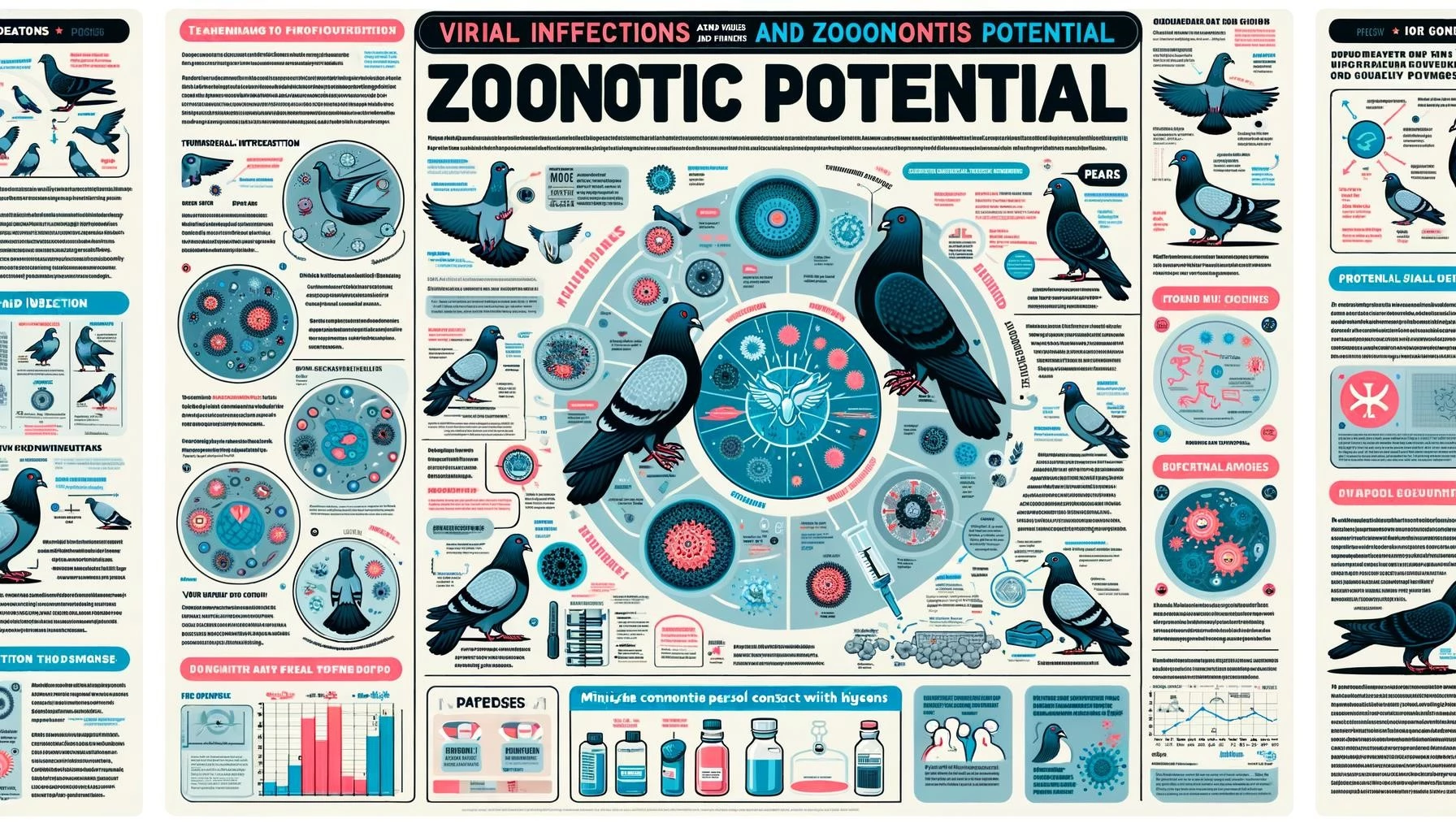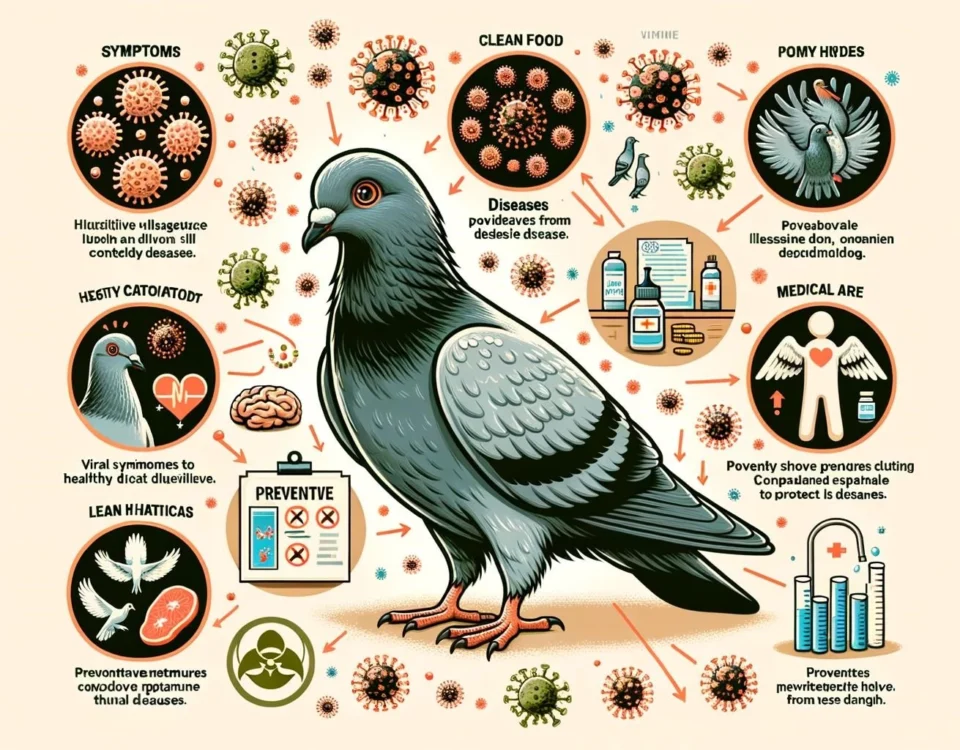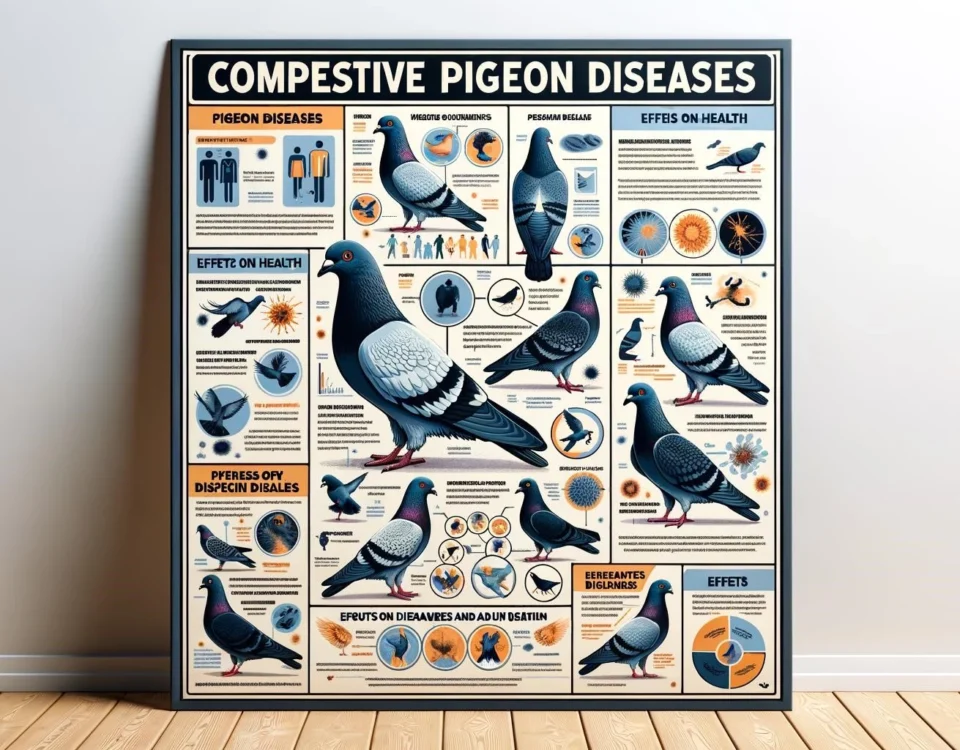As avian aficionados, we often marvel at the grace and beauty of pigeons, but rarely consider the health challenges these birds face. Pigeons, like all creatures, are susceptible to a variety of diseases, specifically viral infections such as Pigeon aviadenovirus A and Pigeon circovirus, which can lead to significant morbidity and mortality. Additionally, these birds can harbor zoonotic pathogens, creating potential risk to human health. This piece sheds light on these conditions, their prevention, and potential treatments.
Key Takeaways
- Viral infections, particularly Pigeon aviadenovirus A (PiAdVA) and pigeon circovirus (PiCV), can cause immunosuppression and lead to high morbidity and mortality in pigeons.
- Pigeon circovirus (PiCV) is considered one of the most important infectious agents affecting pigeon health.
- Pigeons can also be carriers of zoonotic pathogens that can spread to humans.
Viral Infections in Pigeons
Viral infections can have a significant impact on the health and well-being of pigeons. Two important viral infections that affect pigeons are Pigeon aviadenovirus A (PiAdVA) and pigeon circovirus (PiCV).
PiAdVA is associated with an immunosuppression syndrome called Young Pigeon Disease Syndrome (YPDS). It can cause high morbidity and mortality in pigeons, particularly those under 1 year old.
PiCV, first described in the early 1990s, is considered one of the most important infectious agents affecting pigeon health. It can lead to a disease complex called young pigeon disease syndrome (YPDS). PiCV can result in weight loss, diarrhea, joint swelling, and other clinical signs.
Zoonotic Pathogens in Pigeons
Pigeons can act as carriers of zoonotic pathogens, which are infectious agents that can spread from animals to humans. These pathogens can be present in the feces of pigeons and pose a risk to human health.
Various viral families have been identified in the feces of wild urban pigeons, including Circoviridae, Parvoviridae, Picornaviridae, Reoviridae, Adenovirus, and Astroviridae. Some of these sequences belong to known species, while others are novel species.
Pigeons can also carry avian paramyxovirus type 1 (APMV-1), which causes Newcastle disease. Newcastle disease is highly contagious and can affect both wild and domestic birds.
Prevention and Treatment
Preventive measures and proper treatment are crucial in controlling and managing diseases in pigeon flocks.
For viral infections, such as PiAdVA and PiCV, there are no specific antiviral treatments available. However, it is important to maintain good hygiene, sanitation, and biosecurity practices to prevent the spread of these viruses.
Antibiotics can be effective in treating bacterial diseases in pigeons. Common symptoms of bacterial diseases in pigeons include weight loss, diarrhea, joint swelling, and abnormal droppings. Prompt diagnosis and appropriate antibiotic treatment are essential for successful management.
Vaccines and drug candidates are being researched as potential tools for the prevention and treatment of pigeon diseases. Further research is needed to develop effective immunoprophylactic and diagnostic tools specific to pigeon diseases.
Overall, understanding the viral infections and zoonotic potential of pigeons is crucial for the health and well-being of both pigeons and humans. Implementing proper preventive measures and timely treatment can play a significant role in managing pigeon diseases and minimizing their impact.









